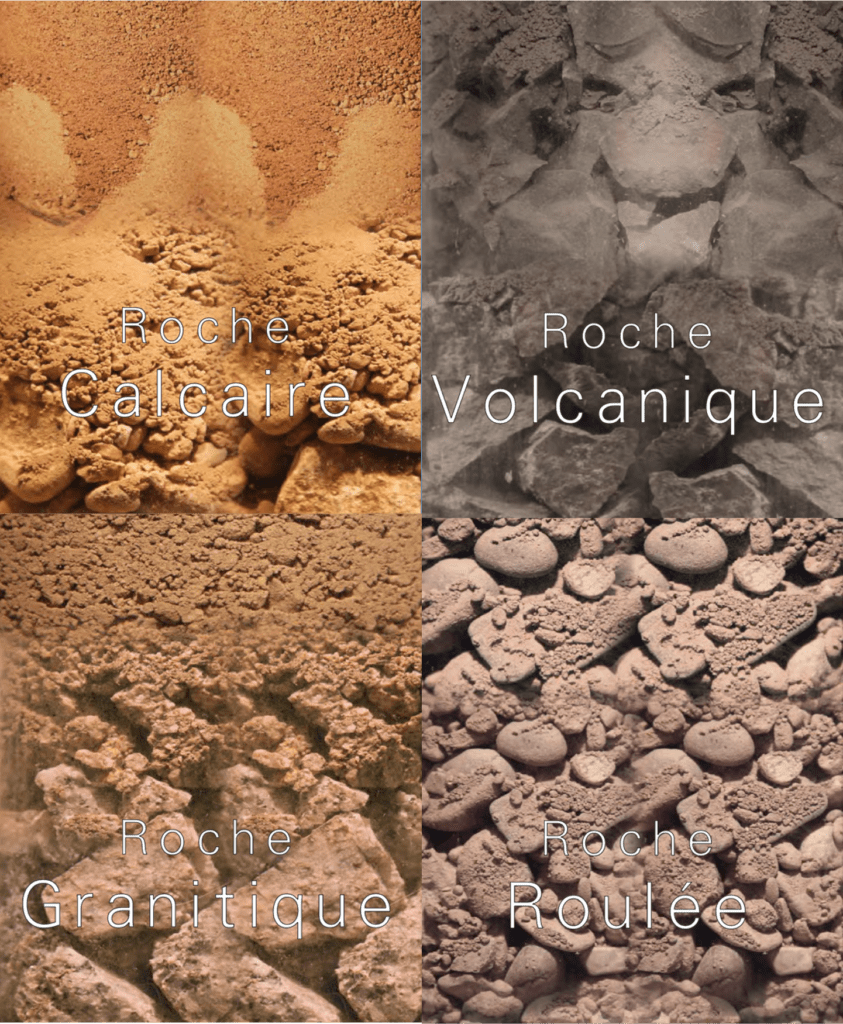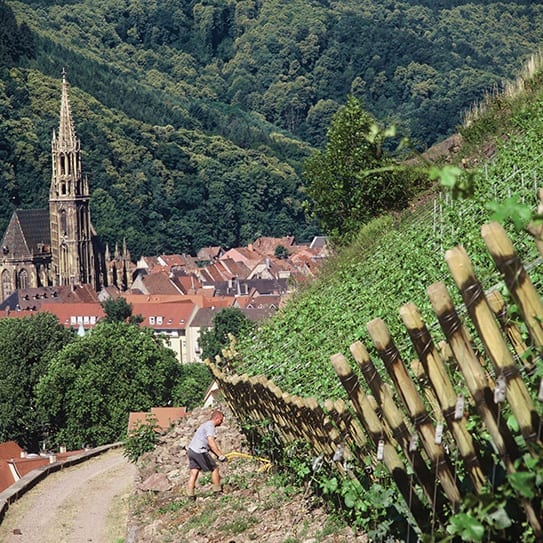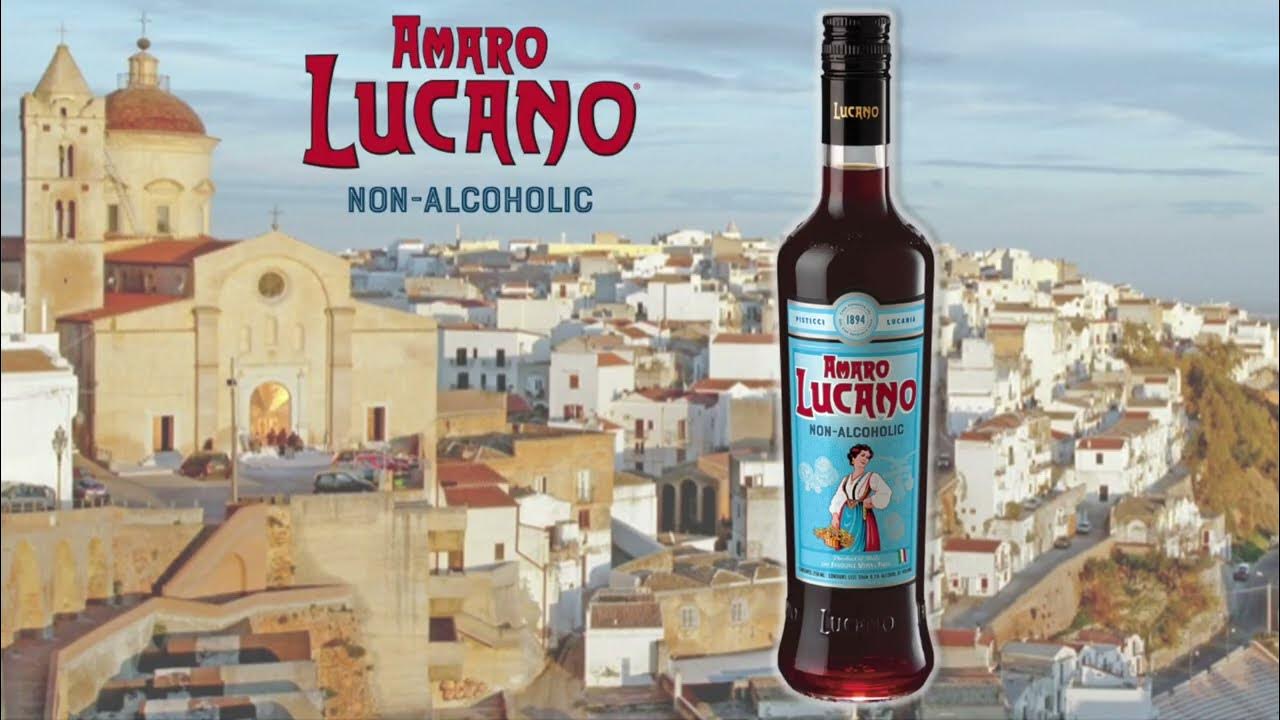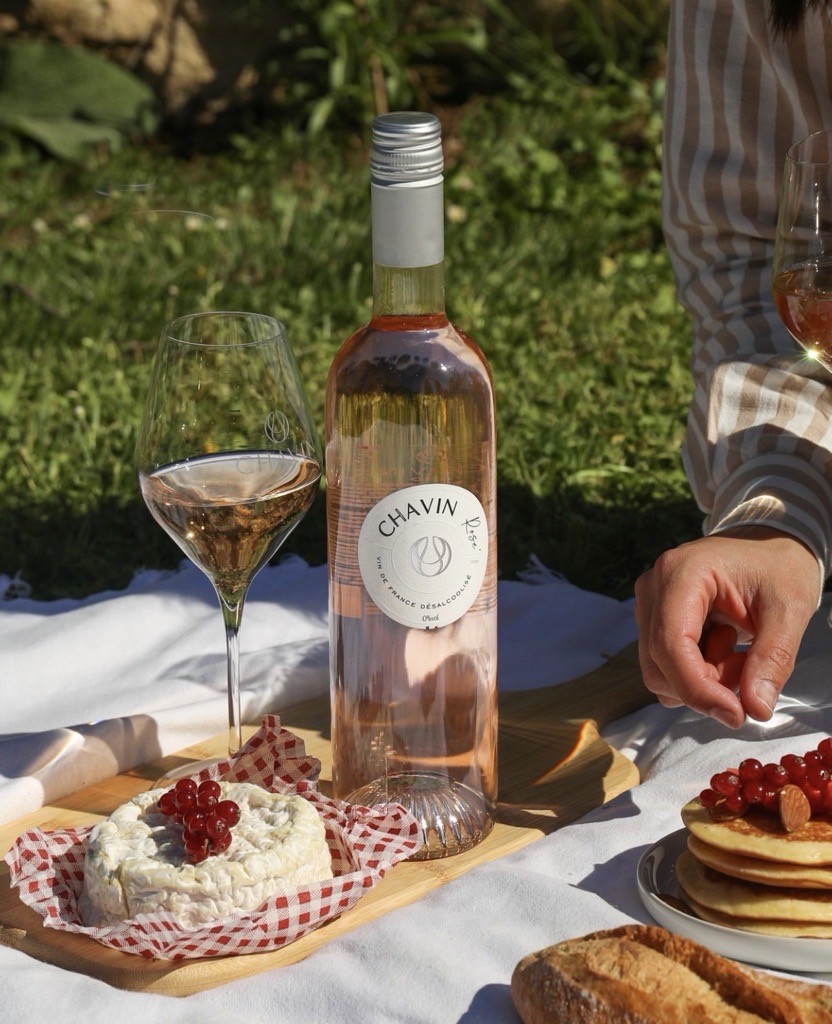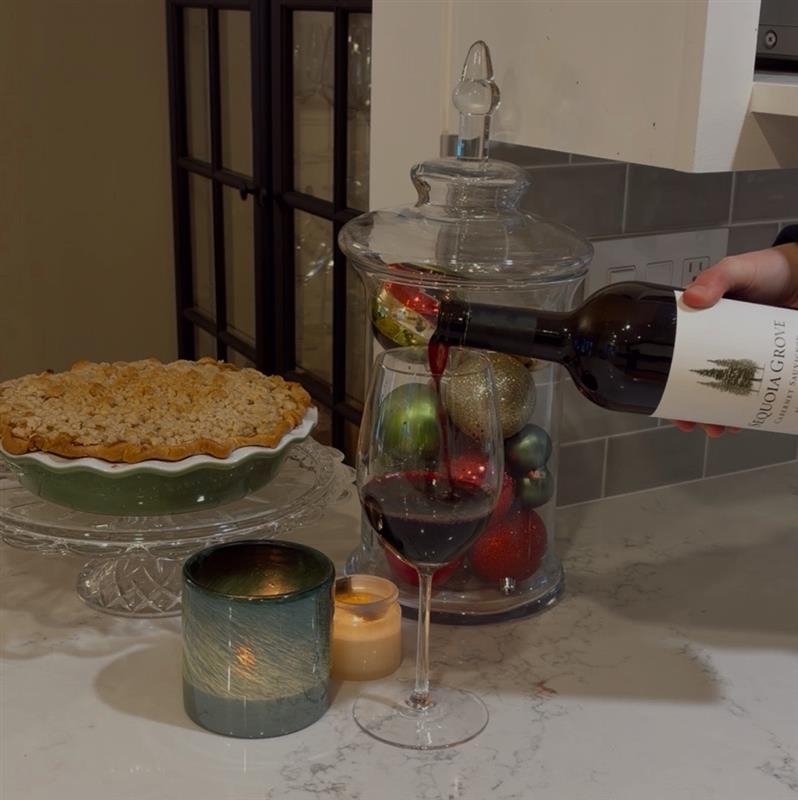Grapevines are like icebergs – much of the action is below the surface. That is why many vignerons speak of soil (or rather sub-soil) as en profondeur or “in depth,” “deep-seated,” “profound” …There is an almost mystical appreciation for ancient rock strata such as schist, gneiss, granite, basalt, silex, and of course limestone in all its many variations. With mature vines developing root systems which can extend many meters deep in their unending search for moisture and nutrients, the inter-relationship between vine and rock takes on real significance. As it turns out, certain vines thrive best among certain sub-soil types, for example the symbiosis of granite with Syrah, or granite with Gamay, or limestone (calcaire) with Pinot Noir.
Some of the most fascinating and rigorous explorations of this phenomena takes place in Alsace. Here one finds diversity of terroirs, sub-soil rock types, and vine varieties. One clarifying attempt to make these distinctions more apparent to general consumers are the range of wines from Domaine Zind-Humbrecht grouped under the Roche (or “rock”) label. These are wines whose flavor profile, texture, and overall impression remains defined by the sub-soil rock type.
Soils, Vines, and How Alsace Wines Are Affected
Roche Granitique – subsoils with strong granite presence
- Riesling
- Bursting with crystalline fruit, the Roche Granitique wines cannot disguise their origins as Grand Cru. Elegant and pure, these wines manage to combine seductive floral aromas, delicate acidity, and a mouth-watering salinity. They are delicious in their youth but have the class to repay the patient.
Roche Calcaire – sedimentary sub-soils with strong limestone (calcaire) presence
- Riesling, Gewurztraminer, Pinot Gris
- The wines from the Roche Calcaire range are often sourced from the young vines of Domaine Zind-Humbrecht’s single-vineyard or Grand Cru sites: these wines offer remarkable value for money. These are wines of structure and pedigree with a texture that speaks of their limestone origins.
Roche Volcanique – sub-soils dominated by ancient volcanic activity, with older rock types pushed from deep within the earth’s crust.
- Pinot Gris, Riesling
- The Roche Volcanique wines come from small parcels of young vines situated on the famous Rangen de Thann Grand Cru. Marked by the power of this remarkable terroir, these wines have a unique aromatic profile of gunflint and smoke, while their subtle structure renders them highly enjoyable in their youth.
Roche Roulée – literally “rolled stones”, a jumble of various types which were accumulated by glacial and liquid water movements over millenia.
- Riesling, Gewurztraminer, Pinot Gris, Muscat
- Made from the winery’s oldest vineyards that sit on the alluvial soils of the Fecht valley, the terroir is comprised of fine silt and moraine—”rolled rocks,” or roche roulée. The Roche Roulée wines are fruit forward and generous with approachable acidity and compelling drinkability, even in their youth.
